90 F. high temperature at St. Cloud yesterday.
76 F. average high on June 9.
76 F. high on June 9, 2014.
.79" rain predicted for St. Cloud Thursday.
3.6" rain predicted for the Twin Cities Thursday. (NAM model).
June 9, 2002:
Extensive flash flood began across northwest Minnesota. 14.55 inches
would fall over the next 48 hours near Lake of the Woods. Floodwaters
covered the city of Roseau. The Roseau River looked like a large lake
from a satellite view.
June 9, 1913: Strange mirage in Duluth. Ships appeared to be floating in the air over Lake Superior.
Failing Forward"You
can't stop the waves but you can learn to surf". How much of life is
talent, timing or luck? Great question. The most important attribute
isn't heritage, upbringing or even education.
It's curiosity.
Questioning
everything, wondering (out loud) how to make things better, faster,
stronger, cheaper. I sure don't have the answer key - but one thing
Americans do better than anyone else: we tinker, experiment and fail.
Unlike other countries there's no stigma for failure. We fail forward,
until we succeed. Ask any entrepreneur. If you're not failing it means
you're not really trying.
To be a synoptic meteorologist is to
embrace failure. Because you can't learn how to predict the weather out
of a textbook. It's trial and error. And error - and error. You learn
from your mistakes, in public, without a safety net.
Expect a
slightly cooler breeze today with generous sunshine and a dip in
humidity levels; the next round of showers and T-storms arrives
Thursday.
Some 1-3 inch rainfall amounts may soak far southern Minnesota; flash
flooding can't be ruled out from the Twin Cities to the Iowa border.
Skies should clear
Friday midday and afternoon - mild sunshine on tap for
Saturday's big
Minnesota Military Family Tribute Dedication Ceremony at the State Capitol in St. Paul.
Tuesday's Severe Thunderstorms.
A broken squall line of intense to severe storms boiled up late in the
afternoon and evening, dropping 1.75" diameter hail near Becker. A few
severe storm warnings were issued, but the storms cooled things off
quickly, providing some much-needed relief from 90-degree heat.
Satellite loop: NOAA and AerisWeather.
Alien Sky.
I snapped this photo yesterday around 7:30 PM as strong storms were
pushing into Hennepin County. Winds gusted to 50 mph with a few minutes
of pea-size hail. Yet boaters remained on the lake, much to my
amazement.
Broiling Tuesday Heat.
You thought it was hot in the Twin Cities? Montevideo, Appleton and
Morris all reached at least 99F yesterday. Mercifully dew points were in
the low to mid 50s, which made it feel a little more tolerable.
Severe Weather Reports So Far in 2015.
Here are the locations of tornadoes and funnels (red), 1"+ hail (green
dots) and straight-line wind damage (blue) for Minnesota and Wisconsin
so far this year. All things considered it's been pretty quiet - no
devastating squall lines or major tornadoes impacting heavily populated
areas. So far we've been pretty lucky. Source:
NOAA SPC.
Moderately Warm - Extremely Wet.
Heavy showers and storms are spaced about 2-3 days apart; a good chance
of heavy showers and T-storms over southern Minnesota Thursday, again
Saturday night and Tuesday of next week. Temperatures average a few
degrees above normal through the end of next week. No extended heat
spells brewing just yet. Source: Weatherspark.
Thursday Soaker Potential.
Last night's 00z NAM run from NOAA prints out 3.6" of rain for the Twin
Cities Thursday into early Friday. If we come close to those amounts
there may be some flash flooding in the metro late Thursday into rush
hour Friday morning.
Trending Even Wetter.
Thursday's heavy rain will be focused on far southern Minnesota and
Iowa; in fact the next 2-3 storms will take a more southerly track. NOAA
models suggest some 3-6" rainfall amounts from from the Plains to the
Midwest and Great Lakes over the next 7 days. If this forecast verifies I
could see some flash flooding and even river flooding from southern
Minnesota to Madison, Des Moines and Chicago.
2014 Billion Dollar Weather Disasters. Here's an update on last year's major weather and climate disasters, courtesy of
NOAA NCDC: "
Updating our January release on the number of billion dollar weather and climate events
last year, in 2014, there were eight weather and climate disaster
events with losses exceeding $1 billion each across the United States
that cumulatively caused over $17 billion in losses. This makes 2014
similar to 2013, which had nine events and over $24 billion in losses
(CPI-adjusted). Since 1980, the year 2011 had the most billion-dollar
events (16) while 2005 remains the most damaging year with over $200
billion in losses (CPI-adjusted)."
May Was Wettest Month on Record for Contiguous USA. Here's an excerpt from NOAA's NCDC,
The National Climatic Data Center: "...
The May precipitation total
for the contiguous U.S. was 4.36 inches, 1.45 inches above average.
This was the wettest May on record, and the wettest month of any month,
in the 121-years of record keeping. For the spring season, the contiguous U.S. precipitation total was 9.33 inches, 1.39 inches above average, and the 11th
wettest on record. This analysis of U.S. temperature and precipitation
is based on data back to January 1895, resulting in 121 years of data..."
A few highlights from May:
- U.S. temperature average was 0.6 degrees F. above average and near the median value in the 121 year record.
- 11
th warmest spring on record for the contiguous U.S.
- Wettest May on record and the wettest month of any in the 121-years of record keeping.
* Thanks to Chad Merril at Earth Networks for passing these nuggets along.
Rainy May Sets Record for Soggy U.S. More perspective from
Climate Central; here's a clip of a recent article: "...
Because
of global warming, such heavy downpours are on the rise in the U.S.; a
warmer atmosphere can hold more moisture, which gives rainstorms more
fuel. A new Climate Central analysis
shows that Texas has seen a 20 percent increase in the heaviest 1
percent of rainfall events in the past 65 years. Individual cities have
seen even higher increases: McAllen, Texas, for example, has seen a 700
percent increase in such downpours and Houston a 167 percent uptick. On
the other end of the rainfall spectrum, a lack of rain played a role in
the considerable warmth that baked Alaska in May. Not only did Alaska
see a statewide average temperature for the month that was 7.1°F above
average, but it also got the earliest 90°F day in state history..." (Image credit:
"Temperatures across Alaska on May 23, 2015." Courtesy of NOAA).
Everybody Out! Evacuating An Entire City to Prep for Fire Season.
Bloomberg Business
reports on the logistics of trying to evacuate an entire town - a drill
meant to prepare residents for a potentially extreme fire season;
here's an excerpt: "...
Despite the record spending, there’s little
evidence that pouring money on the flames is decreasing fire size or
destructiveness. Fire seasons now burn six times the acreage they did
40 years ago and three times the number of homes that went up in smoke
just 20 years ago. The increases can be blamed on a hundred years of
fire suppression, which has allowed fire-adapted forests to grow
unnaturally thick, and climate change, which has lengthened drought and
fire intensity in kind. Even though fires are proving harder to control,
and extinguishing them is bad for forest health, agencies continue to
fight wildfires because 140 million people live in fire-prone areas in the U.S. In other words, it’s a matter of public safety..."
The Deadly Combination of Heat and Humidity.
The New York Times
has a good article and explainer on wet bulb temperature, and how it's a
better indicator of heat stress than traditional dew point. Here's an
excerpt: "...
These heat waves will only become more common as the
planet continues to warm. They don’t just affect tropical, developing
countries; they’re a threat throughout the world. The July 1995 heat
wave in the Midwest caused over 700 deaths in Chicago. The August 2003
heat wave in western Europe led to about 45,000 deaths. The July-August
2010 heat wave in western Russia killed about 54,000 people..."

Hurricanes Can Inflict Major Damage Beyond Their Predicted Paths. Here's a snippet of a good article and timely reminder from James Franklin at NHC, The Conversation, and
Scientific American: "...
Nearly
20 years later, even as the science has progressed, Max Mayfield’s
advice is still sound—don’t focus on the skinny black line! Forecasts
are uncertain, and an appreciation of that uncertainty is essential to
smart decision-making when hurricanes threaten. To help educate users,
NHC has established a web page dedicated to forecast accuracy.
Please drop by and have a look to see how well our forecasts measure
up. And finally, even though NOAA and others are expecting a relatively
quiet 2015 Atlantic hurricane season, remember: it takes only one bad
storm in your neighborhood to make it a bad year for you." (Hurricane Isaac file photo: NASA MODIS).

Better Hurricane Observation Techniques Over The Decades Make Big Storms Less Deadly. Here's an except of an interesting story at
Live Science: "...
Landline telegraph reports and, after 1910, radio ship reports formed the observational basis of real-time forecasts until Joseph Duckworth
flew a single-engine instrument-training airplane into the “Surprise”
Hurricane of 1943. Once aviators realized they could penetrate to the
centers of hurricanes and live, aircraft reconnaissance of hurricanes
became routine. Observational tools were still primitive — visual
estimation of wind direction and speed based on the appearance of the
sea and extrapolation of surface pressures from altitudes of a few
hundred feet..."
Photo credit above: "The
unnamed Categor 4 hurricane that slammed into Galveston, Texas, Sept.
8, 1900 remains the deadliest to ever hit the United States, having
killed at least 8,000 people (estimates vary) and leveling virtually the
entire town." Credit: NOAA Photo Library.
Deadliest Tornado in New England History. The Boston office of the National Weather Service has an
infographic
on the Worcester, MA tornado of June 9, 1953, whick killed 94 people
and injured over 1,000. It was a rare F4, up to a mile wide at times.
Our Fate Is Tied To Our Ocean. Here's the introduction to a story at
Huffington Post: "
It's
not an exaggeration to say that we depend upon the ocean for our very
existence. It regulates our climate and our weather. It generates half
of the oxygen we breathe. It provides food and income for billions of
people. Covering almost three-quarters of the planet, the mighty ocean
is -- without a doubt -- a natural resource like no other. Our fate is
inextricably tied to the ocean's fate and the ocean is in trouble..."

President Obama's Eulogy For Beau Biden. Thanks to Dave Pell for providing the full text of the President's remarks at
medium.com - honoring an amazing man. It's some of the most beautiful writing I've ever encountered. Here's an excerpt: "...
We do not know how long we’ve got here. We don’t know when fate will intervene. We cannot discern God’s plan. What
we do know is that with every minute that we’ve got, we can live our
lives in a way that takes nothing for granted. We can love deeply. We
can help people who need help. We can teach our children what matters,
and pass on empathy and compassion and selflessness. We can teach them
to have broad shoulders..."
Photo credit above: "President
Barack Obama pauses as he delivers the eulogy in honor of former
Delaware Attorney General Beau Biden at St. Anthony of Padua Church in
Wilmington, Del., Saturday, June 6, 2015. Biden, the vice president's
eldest son, died at the age of 46 after a battle with brain cancer." (AP Photo/Pablo Martinez Monsivais).
How Safe is Air Quality on Commercial Planes.
The BBC takes a look; here's a snippet of their report: "...
Aviation
lawyer Frank Cannon believes pilots and cabin crew are at greatest
risk, and as a result of exposure to contaminated air could become unfit
to fly. He believes in some instances pilots may be willing to hide
cognitive dysfunction or memory deficits caused by the poor air quality
for fear of losing their jobs, which puts others at risk. In other
instances, he says, pilots may not be aware of the symptoms, meaning
they similarly continue to fly while unsafe to do so..."
TODAY: Sunny, a bit less humid. Dew point: 55. Winds: NW 10. High: near 80
WEDNESDAY NIGHT: Mostly clear and more comfortable. Low: 62
THURSDAY: Showers & T-storms, heaviest southern Minnesota. High: near 70
FRIDAY: Damp start, then rapid clearing. Wake-up: 59. High: 76
SATURDAY: Fading sun, dry most of the day. T-storms at night. Wake-up: 58. High: 77
SUNDAY: Rain tapers, slow PM clearing. Wake-up: 61. High: 80
MONDAY: Sticky, intervals of sun. Dew point: 64. Wake-up: 65. High: 83
TUESDAY: Next round of showers, T-storms. Wake-up: 63. High: 77
Climate Stories...
Spring Climate Recap. The map above was generated by
NOAA NCDC, which has more details on major weather and climate events during spring of 2015 here.
Coal-Plant Rules Proposed by EPA Survive Challenge in Federal Court. Here's the latest from
The New York Times: "
A
federal court on Tuesday dismissed a lawsuit by the nation’s largest
coal companies and 14 coal-producing states that sought to block one of
President Obama’s signature climate change regulations. The lawsuit, Murray Energy v. E.P.A.,
challenged the Environmental Protection Agency’s proposed rule to
reduce planet-warming greenhouse gas emissions from power plants. If
enacted, the rule could shutter hundreds of such plants, freeze
construction of future plants and slow demand for coal production in the
United States..."
File photo credit above: "In
this Tuesday Jan. 20, 2015 file photo, a plume of steam billows from
the coal-fired Merrimack Station in Bow, N.H. The Obama Administration’s
hotly debated plan to cut the amount of heat-trapping carbon dioxide
coming out of the nation’s power plants will save about 3,500 lives a year from also reducing other types of pollutions, a new independent study concludes." (AP Photo/Jim Cole, File)
Risk of Flooding Rises With Global Warming, Says Study.
We're witnessing more frequent bursts of extremely heavy rain. In many
cases Infrastructure designed and built in the 20th century can't keep
up with 21st century downpours. Here's an excerpt of a story at
The Toronto Star: "...
Peak rainfall during storms will intensify as the climate changes
and temperatures rise, leading to increased flash flood risks,
especially in urban areas, new research from Australia indicates.
Scientists at the University of New South Wales in Sydney analyzed about
40,000 storms from three decades in Australia and found that warming
temperatures are dramatically disrupting rainfall patterns within storms..."
Image credit above: Virginia Department of Transportation.
Republican Pledges $175 Million To Push Party on Climate. An unlikely headline, signs of a growing schism within the GOP on environmental matters. Here's an excerpt from
Politico: "
A
Republican entrepreneur is putting a whopping $175 million behind a
campaign whose message will have some party stalwarts seeing red: The
GOP needs to deal with climate change. North Carolina businessman Jay
Faison will launch a social media and online advertising blitz, backed
by state and national digital advocacy efforts and a series of strategic
grants, as part of a $165 million campaign run through the ClearPath
Foundation..."
Secretive Donors Gave U.S. Climate Denial Groups $125 Million Over Three Years. Wonder why there's so much confusion and disinformation out there? It's bought and paid for. Here's an excerpt from
The Guardian: "
The
secretive funders behind America’s conservative movement directed
around $125m (£82m) over three years to groups spreading disinformation
about climate science and committed to wrecking Barack Obama’s climate
change plan, according to an analysis of tax records. The amount is
close to half of the anonymous funding disbursed to rightwing groups,
underlining the importance of the climate issue to US conservatives. The
anonymous cash flow came from two secretive organisations – the Donors
Trust and Donors Capital Fund – that have been called the “Dark Money ATM” of the conservative movement..."
Faith Groups Seek Climate Deal Boost From Pope, Pilgrimage. Here are a couple of excepts from a story at
Thomson Reuters Foundation: "...
Climate
change has begun to motivate religious leaders and believers over the
past two years because "it has become an issue with a human face" as the
effects of extreme weather - such as Typhoon Haiyan in the Philippines -
and sea-level rise have become clearer, he said...The organisers of the
People's Pilgrimage said anyone can undertake their own journey, and
share the details via an interactive website: http://peoplespilgrimage.org/..."
Pope Francis is a Christian, Not a Communist. Breaking news, courtesy of
New Republic; here's an excerpt: "...
Suspicion
of the types of accumulation that characterize capitalism—including the
massive build-up of wealth among a small number of unimaginably rich
plutocrats—is therefore more common to Christianity than the unreserved
embrace of the same that is now typical of American right-wingers.
Rather than asking if Pope Francis’ positions on reducing inequality and
protecting the environment are products of communism, it would be much
wiser and more insightful to ask if conservative rejection of
environmentalism and egalitarianism are really products of Christianity..."
Photo credit above: Luca Zennaro/Pool Photo via AP.
We're All Climate Change Deniers At Heart. Some more than others. Here's an excerpt of an interesting read at
The Guardian: "...
In
fact, if a cabal of evil psychologists had gathered in a secret
undersea base to concoct a crisis humanity would be hopelessly
ill-equipped to address, they couldn’t have done better than climate
change. We’ve evolved to respond more vigorously to threats that are immediate
and easy to picture mentally, rather than those that are distant and
abstract; we’re more sensitive to intentional threats from specific
humans, rather than unintentional ones resulting from collective action;
we’re terrible at making small sacrifices
in the present to avoid vast ones in future; our attention is seized by
phenomena that change daily, rather than those that ratchet up
gradually over years..."
Montana Farmers Union Releases Report on Climate Change's Impacts.
KPAX.com reports on the effects of a warmer, more volatile climate on Montana's agricultural sector; here's an excerpt: "...
Since
1900, the average temperature in Montana has risen 2.4°F. Research
shows that producers will have to prepare for a number of challenges as
the impacts of climate change are felt, including reduced water
availability in mid-late summer, increased pressure from weeds and
pests, a reduction in the yield and quality of grains, and more
occurrences of severe weather and drought. Dr. Fabian Menalled, a
professor in MSU's Dept. of Land Resources and Environmental Sciences,
is studying how climate change could impact Montana's grain producers..."
How Young People Are Tackling Climate Change.
The Guardian
interviewed a number of young people for their views, perspectives and
what they're doing to help; here's an excerpt that resonated with me:
"...
As I drove home after the meeting, I kept on trying to make
excuses as to why I was justified in driving to the meeting. But I
couldn’t get over the fact that at my heart I was a hypocrite. I am
expecting my government to take radical action; I am expecting those
around me to give a damn; but I myself haven’t made the radical change
in my life. As yet, I still haven’t – but I can’t ignore my hypocrisy
now. Perhaps my greatest motivation is that, as a Christian preacher, I
cannot stand in the pulpit preaching “change” with any integrity unless I
am willing and have taken steps to make that change!..."
Image credit: The faces behind #groundup.
Lindsey Graham Urges Action on Climate Change.
Is the GOP orthodoxy on fossil fuel support breaking down or is Senator
Graham whistling in the wind? Personally, he's the voice of
science-sanity in the wilderness, and we wish him well in his quest to
become President of the United States. Here's an excerpt from
Politico: "...
If
I’m president of the United States, we’re going to address climate
change, CO2 emissions in a business-friendly way,” the South Carolina
senator said. “I do believe that climate change is real.” ”When 90
percent of the doctors tell you you’ve got a problem, do you listen to
the one?” Graham added, in a nod to the vast majority of scientists who
say climate change is real and caused by human activity..." (Photo credit: AP).
Richard Parker: The Price of Ignoring Climate Change.
From crippling droughts to biblical floods, Texas, along with Florida
and California, appear to be some of the first states to be directly
impacted by a warmer ocean and warmer seas, sparking more weather
extremes and whiplash. A columnist at
The Dallas Morning News is challenging Ted Cruz and other climate change skeptics/denialists on the science; here's an excerpt: "
If
Ted Cruz wants to be president, then I have an invitation for him: He
should spend the next year not campaigning but instead cleaning mold out
of homes and hauling and burning debris along the Blanco River. The
reality is that there is a profound disconnect between the politicians
of Texas and the 27 million Texans who increasingly feel the effects of
climate change. Texas is getting hotter and drier before much of the
rest of the country, and that only makes storms worse as they defy
nearly every model. The science is clear; only the politicians are fuzzy..."
File photo credit above: "
Mark
Baker takes photos of the Trinity River in Dallas on Saturday, May 30,
2015. The National Weather Service has issued a flood watch for portions
of Central and South Texas, which could see as much as five inches of
rain Saturday if a storm system stalls over the area." (AP Photo/Rex C. Curry).

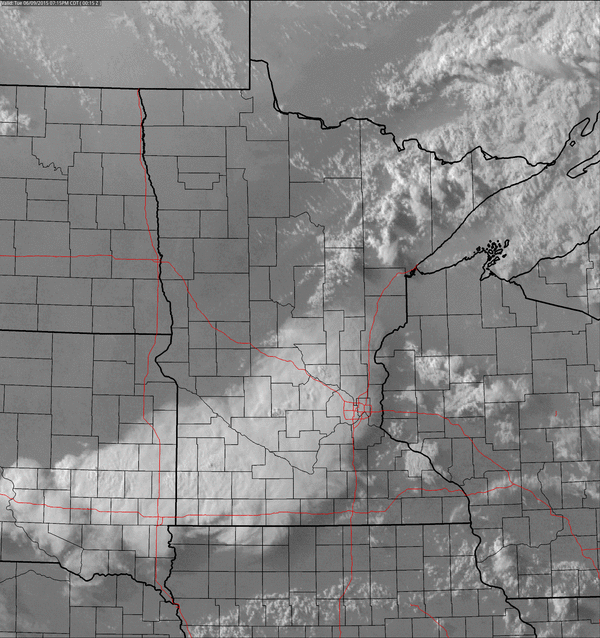
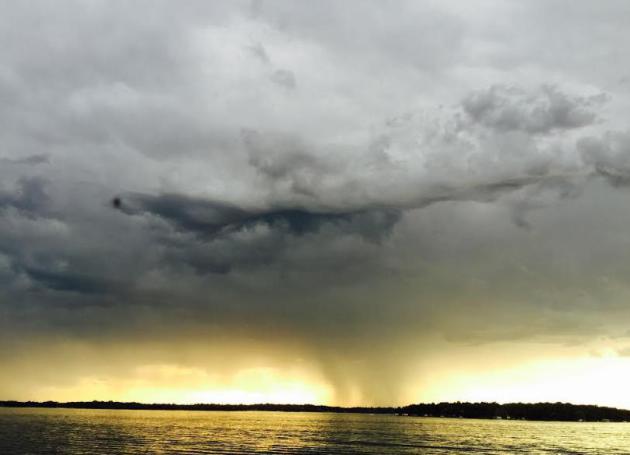
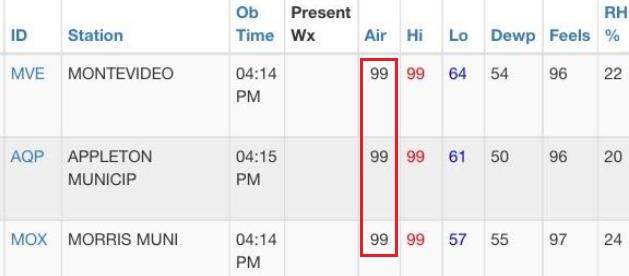
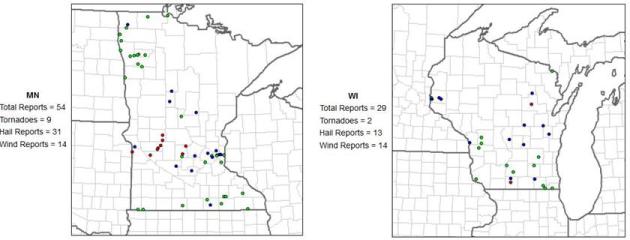
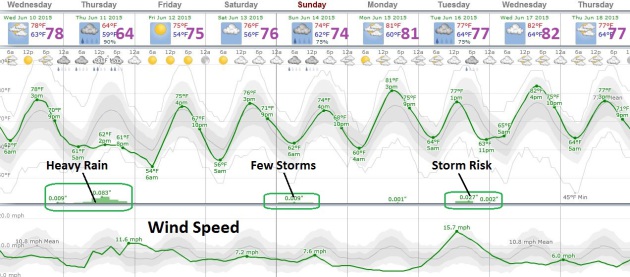
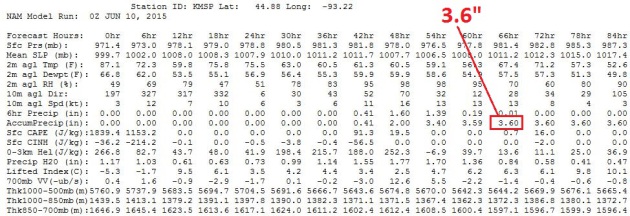
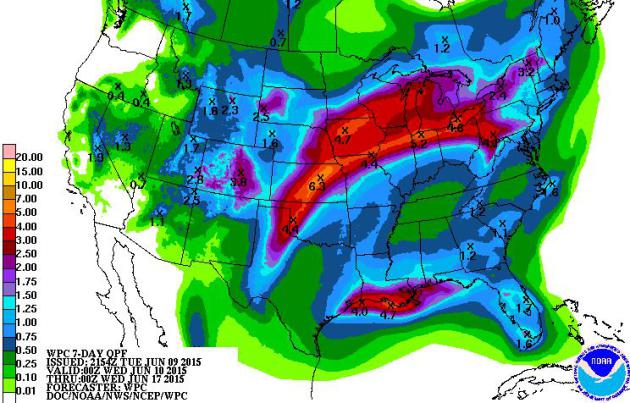
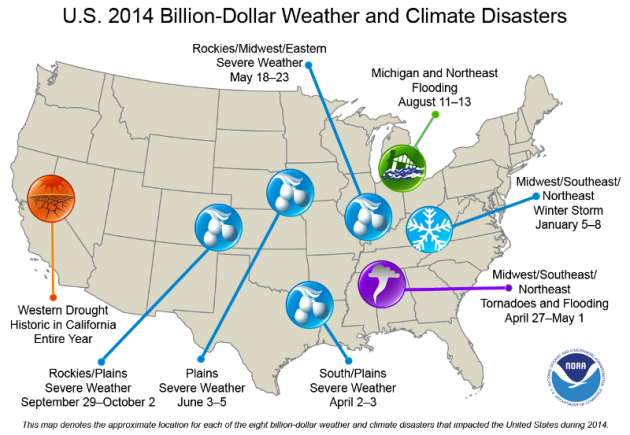
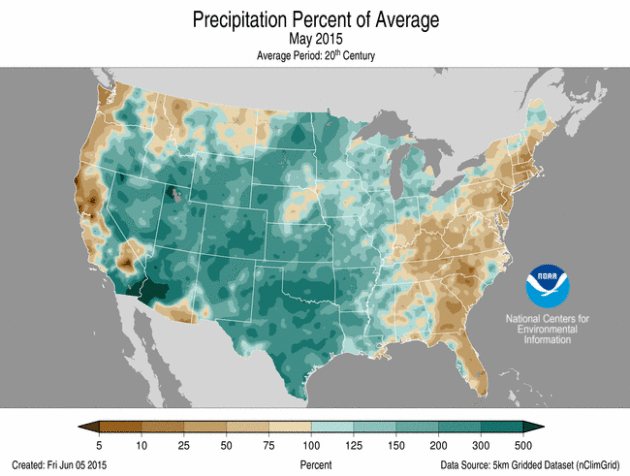
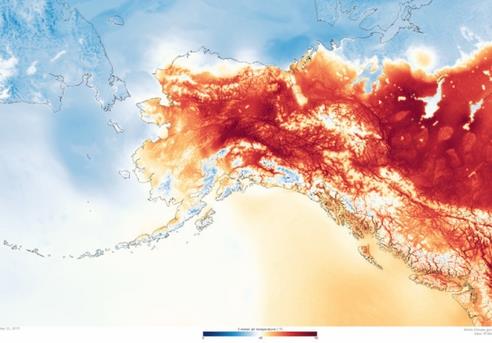
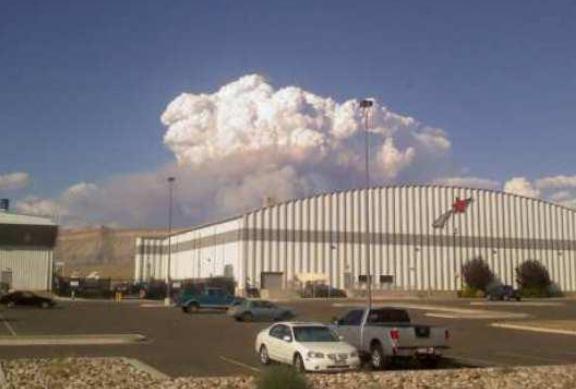
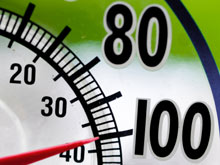
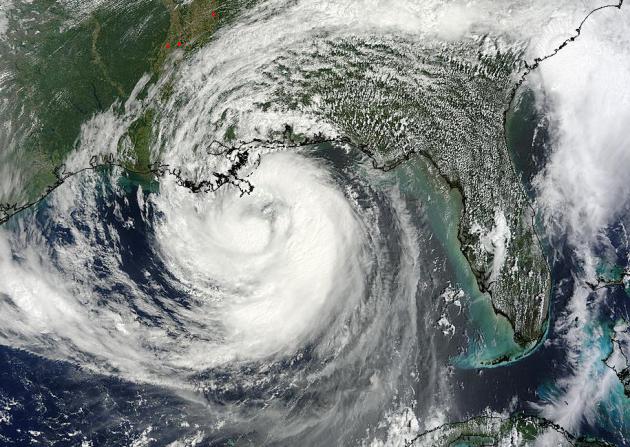
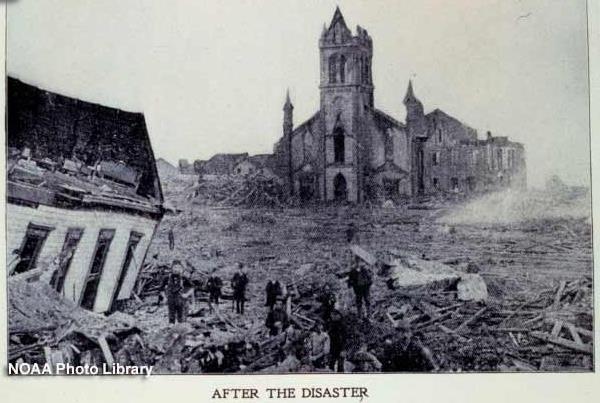
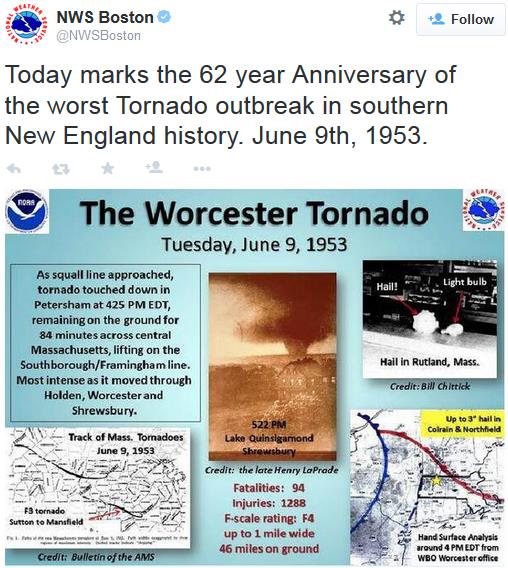
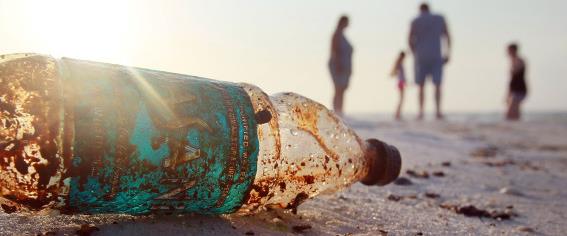
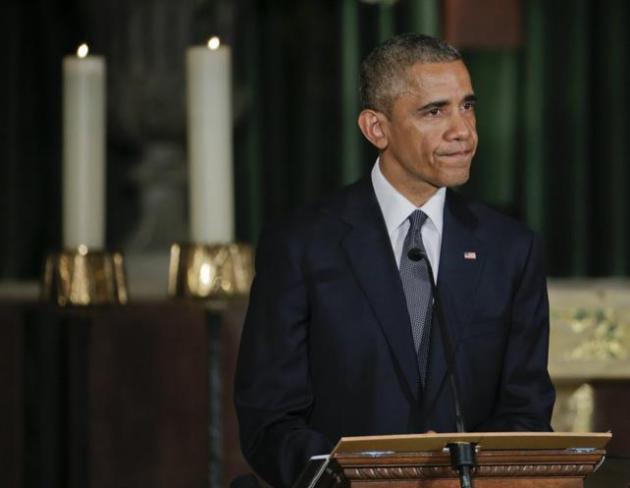


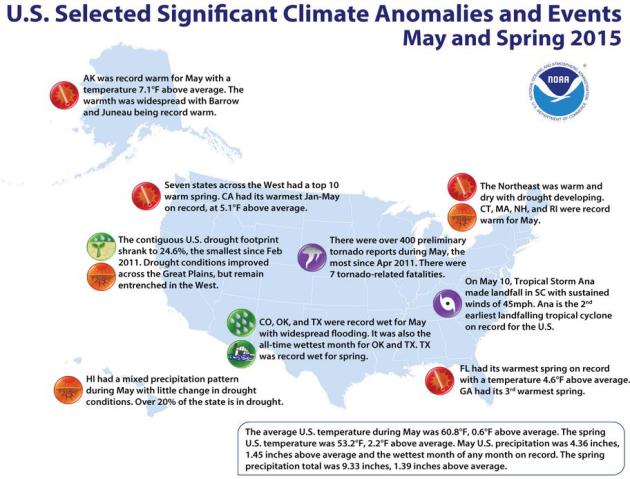
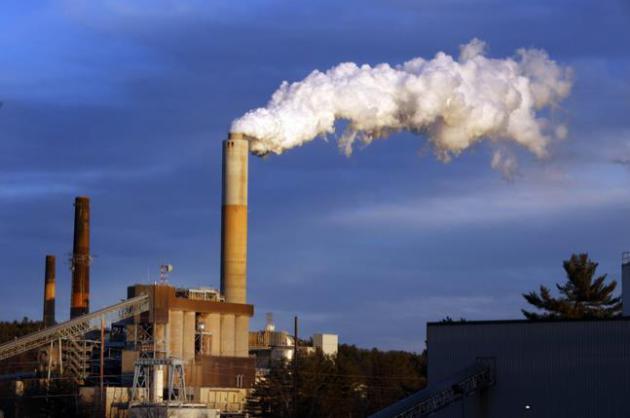
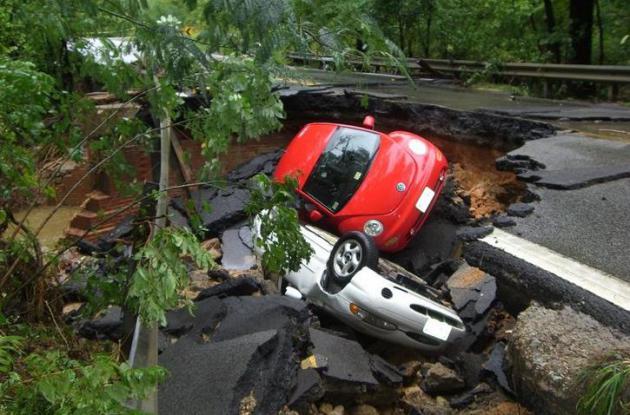
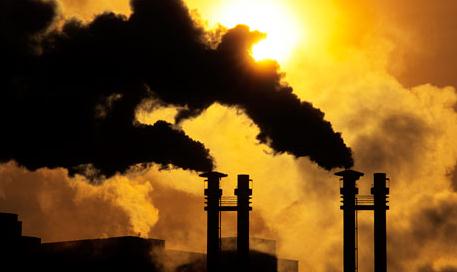

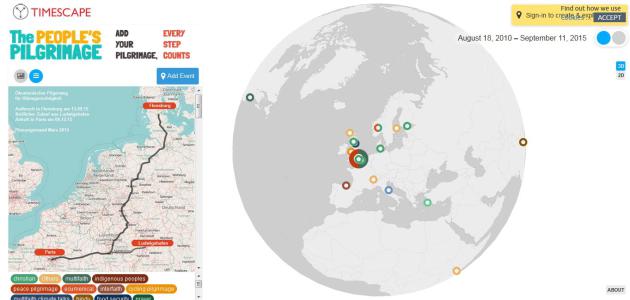



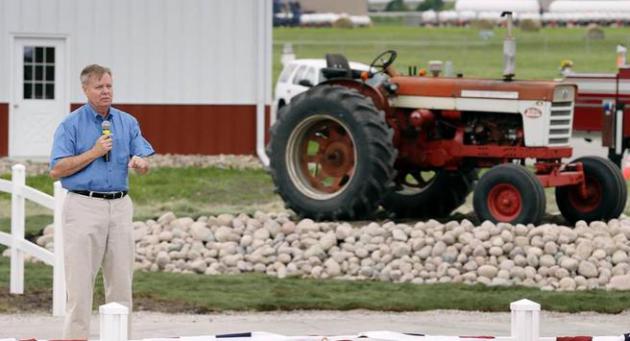
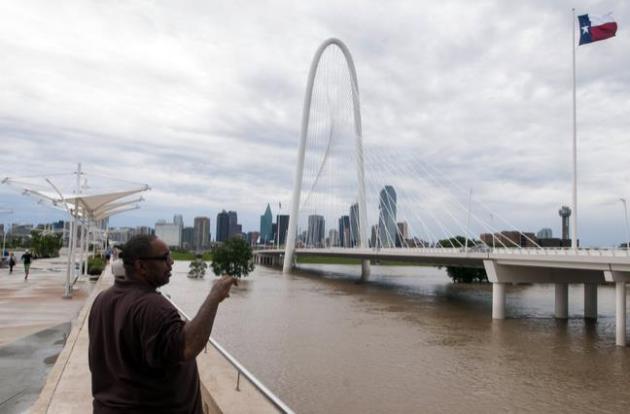
No comments:
Post a Comment